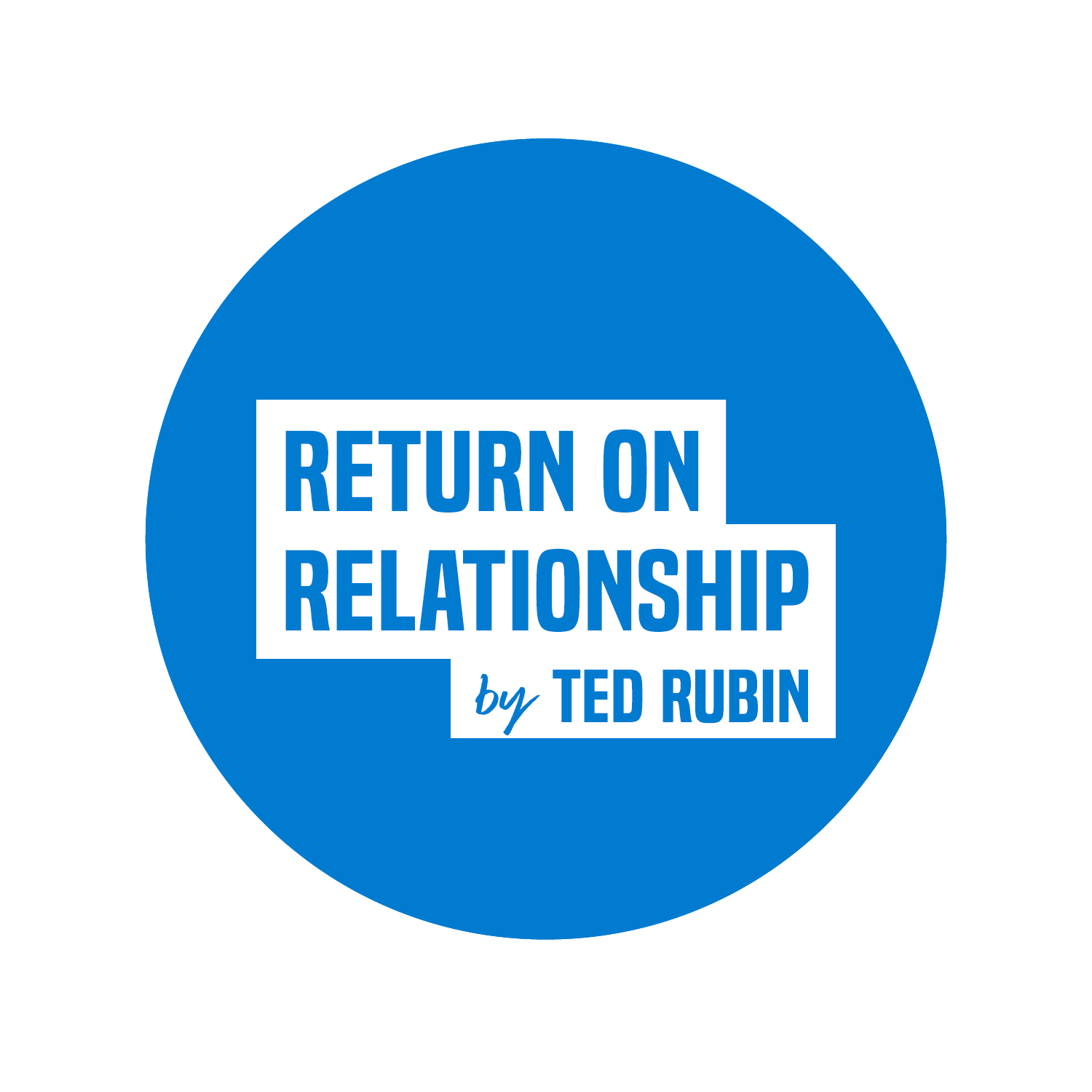Why Companies Should Strive to Create a ‘Learning-Centric’ Culture ~via @EvergreenTradng's @TalonyaGeary
There are few better ways to empower anyone than encouraging them to think freely. It’s not just about the bottom line, either. It’s about creating an environment where new ideas are treated with the curiosity and rigor they deserve. A place where employees can learn, reflect, and refine their own skills and thought processes. Not every employee is going to come up with ground-breaking ideas, but subtle improvements and professional growth come naturally with thinking.
Like I have been saying for many years now... Empower your Employees, and they will Power your Brand! /Ted
By Talonya Geary, Manager, Training & Development
(Read the original article on Advertising Week HERE)
Organizations are being challenged to manage a slew of workplace complexities they wouldn’t have imagined a few years ago, testing their strength and agility to evolve with the times. From onboarding first-time employees remotely, to navigating the diverse needs of up to five generations, companies have no choice but to think holistically about how to continue to grow, while putting their employees’ needs in full frontal view. In some cases, the practices that helped an organization reach maturity are now putting them at risk of decline and those organizations that haven’t prioritized learning new ways of operating will inevitably pay the price.
It is no longer enough to hire and train talent whose skillsets match baseline job descriptions and then expect productivity to be a constant return. It is also no longer an acceptable approach for talent management to assume all individuals will meld into their teams and fall in line with industry standards.
We fortunately now find ourselves in a world that embraces, honors and celebrates individual contributions towards both the organization’s and the individual’s bottom lines. At Evergreen Trading we’re led by a guiding principle to think generously while shaking things up. Our approach to growing capital of all types is no different.
THE NAVIGATION [From here to there]
The key to managing this well is to adopt practices and rituals that will withstand the test of time and as outlined in Peter Senge’s “The Fifth Discipline,” the answer is found through the creation of what he calls a learning organization. Take Customer Experience (CX) for example — for the last several decades, companies were myopically focused on what their customer was ultimately thinking, feeling, saying and doing in response to the organization’s product or service offering. However, according to a recent report published by Forrester Research, it’s clear that today’s organizations must pivot to put the Employee Experience (EX) front and center.
This shift, albeit not an easy one, has been proven to foster geometric results for all stakeholders. Companies that remain unshakable to the demands of CX thus fail to respond to the massive shifts happening to and with their most valuable asset, their human capital. As a result, they’re left playing catch up and confused by waning profits.
To remain competitive, innovative and sustainable through this turbulent market, 21st-century leadership skills can and should be deployed throughout all layers of the organization. This strategy enables leaders and those they serve to first build social capital and co-create new intellectual capital that might otherwise be lost or entirely overlooked. Organizations who are leading the way put employee experience at the heart of their strategy and know that not only successful employees but fulfilled employees, are their true competitive advantage.
Companies can and must build a learning organization that puts every learner in the driver’s seat of their own professional growth and non-stop learning, regardless of age experience, title or length of service with the organization. There is plenty of research and evidence tying employee productivity, satisfaction and retention directly to ongoing investment into employee learning and development. Not only is this a proven business strategy, but it is also the right thing to do, especially in this currently competitive knowledge-based economy that will brutally leave you behind if you fail to keep up.
THE STRATEGY
As great as this sounds in theory, deep practice and ritualistic organizational behaviors are needed to catalyze and crystalize change. Implementing these practices must be done in a thoughtful and disciplined manner, inspiring teams to become obsessed with lifelong learning that ultimately serves the needs of all stakeholders. It’s imperative that senior leadership “go first” and serve as the model and evangelist of the benefits of “lifelong learning” and work with other senior leaders to collaboratively build their learning organization. From there, the organization can make its culture visible through a shared language that can be learned, practiced and eventually become the DNA of the organization itself.
Organizations need to take a holistic approach to organizational learning in a way that is communicated with consistency and leaves no stone unturned, declaring that learning happens anytime, anywhere, no matter what your position within the organization. At the start of the pandemic, our learning and development team kicked into high gear, offering weekly learning experiences in a series of virtual, immersive events whimsically named “Brunch n’ Learns”, a name reflecting the various time zones our learners lived in. And lastly, it should not be overlooked that learning can and should be social – some of the best organizations have transformed teams simply by creating the conditions for those teams to learn together.
In addition to providing the necessary resources for hard skills development and industry-related training, forward-thinking organizations are prioritizing learning that hits closer to home. At Evergreen Trading, we have made intentional investments in third-party solution providers in the holistic health and wellness space. The partners not only create unique opportunities for our team to improve their physical and emotional health but they even go as far as providing solutions around financial security and customized programs for individuals of a variety of ages and acute wellness needs. As self-care continues to trend as the global workforce’s top problem to solve, understanding the difference between self-development and self-care can be the tipping point for your valuable people.
THE IMPLEMENTATION
To make a learning-centric strategy a reality, organizations must use a systems-thinking approach that includes ritualistic practices by the organization around learning. At Evergreen Trading, we take a multi-channel approach to learning through Evergreen Academy, our internal source for all things learning and development. Evergreen Academy offers up to six learning pathways ranging from an all-hands approach to developing leading-edge leadership skills to team-based learning programs that celebrate the potency of peer-to-peer learning. These pathways deeply explore topics ranging from industry advancements to frameworks centering around belonging and dignity. We offer these programs not as one-offs but as a part of business as usual, encouraging individuals to find, at least, 1% of each week to dive into learning. Along with a great menu of learning experiences, we remain heavily committed to assessing, tracking and constantly measuring our successes and areas of improvement every step along the way.
After more than two years of implementing deep learning at all levels of the organization, we are starting to see the fruits of our labor start to blossom. We believe we are truly starting to crack the code on employee experience and look forward to building a forward-thinking path that celebrates growth, diversity and success through learning.
Although many paths lead to the same destination, we bring our learning organization to life by creating learning goals that are specifically tied to our strategic organizational goals. Future-pacing organizations look at these new ways of measuring ROI with human capital, reputational capital, social & political capital and more. Putting these metrics in place can reveal patterns of specific financial losses and gains and encourages every person in your organization — from entry-level to C-Suite — to think about talent, how it’s managed and grown, in the ways it needs to write its ultimate success story.
Let me conclude by stating what feels like the obvious, people are living creatures with a constant need and desire to grow – an organization is no different. The more seeds of knowledge that get planted, combined with learning experiences that are created to fertilize the workforce, the more this allows organizations to celebrate successful harvests in the most meaningful ways for all, season after season and then some.



